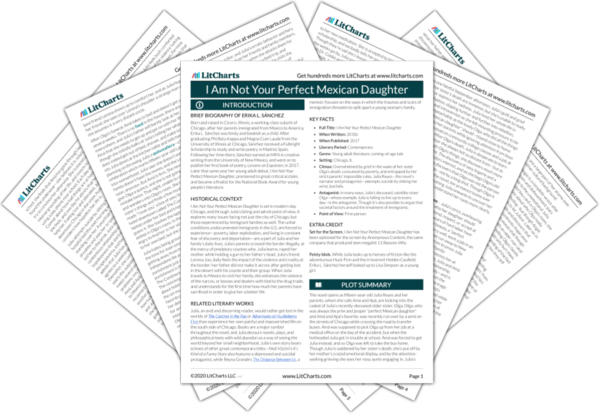Julia’s mother’s overbearing nature and strict rules start to make more sense in light of this passage—it’s clear that Julia’s working-class neighborhood is not the safest place, and the fear and helplessness she feels when confronted with yet more predatory men are acute and disorienting. Just as the book is nuanced in the way it dissects the idea of anyone being perfect, it is similarly nuanced in the way it handles people being wrong. Amá isn’t wrong to worry about Julia, men, and sex, but the controlling
way she shows that worry has its own negative impacts.
